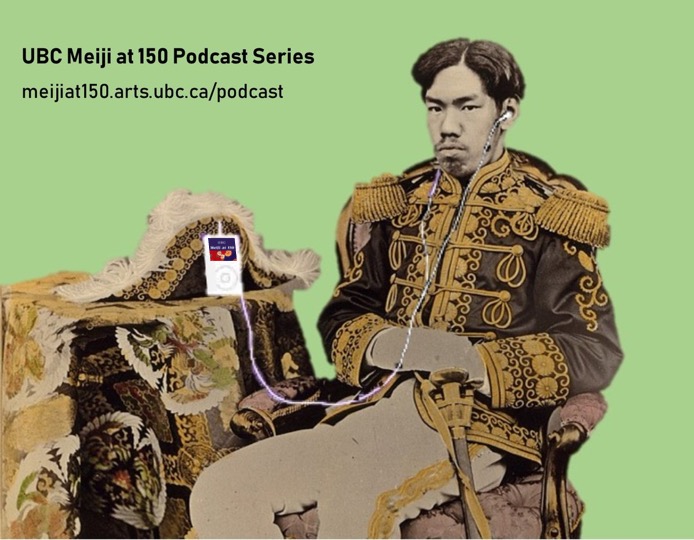
In the Meiji at 150 Podcast, host Tristan Grunow (UBC) interviews specialists of Japanese history, literature, art, and culture. Topics covered will range from the position of the Meiji Restoration and Meiji Period in each scholar’s research, to how they view the significance of the Restoration in Japanese and global history, and finally to how they teach the Meiji Period in their classrooms. Follow us to hear about the recent research of prominent scholars of Japan along with their pedagogical approaches to one of Japan’s most transformative periods.
Click here to view the Meiji at 150 Podcast Episode Guide
Episode 80 – Dr. Ellen Nakamura (The University of Auckland)
 In this episode, Dr. Nakamura diagnoses the development of medical practice in Meiji Japan, starting with battlefield medicine during the Bōshin War. We discuss the violence of the Meiji Restoration, changes in medical practice following the Restoration, and the roles of female physicians and Western advisors in the development of Japanese medical practice. (Transcript here).
In this episode, Dr. Nakamura diagnoses the development of medical practice in Meiji Japan, starting with battlefield medicine during the Bōshin War. We discuss the violence of the Meiji Restoration, changes in medical practice following the Restoration, and the roles of female physicians and Western advisors in the development of Japanese medical practice. (Transcript here).
Episode 79 – Dr. Steven Ericson (Dartmouth College)
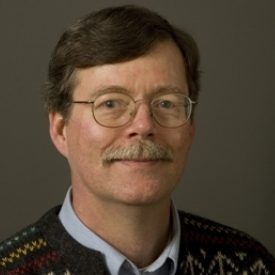 In this episode, Dr. Ericson rethinks several common understandings of Meiji industrialization and economic modernization, reassessing ideas of fiscal retrenchment during the Matsukata Deflation, challenging assumptions of Tokugawa structural preconditions for Meiji industrialization, and questioning the speed and success of Meiji industrial growth. (Transcript here).
In this episode, Dr. Ericson rethinks several common understandings of Meiji industrialization and economic modernization, reassessing ideas of fiscal retrenchment during the Matsukata Deflation, challenging assumptions of Tokugawa structural preconditions for Meiji industrialization, and questioning the speed and success of Meiji industrial growth. (Transcript here).
Episode 78 – Dr. Taka Oshikiri (University of the West Indies-Mona)
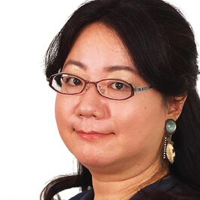 In this episode, Dr. Oshikiri describes changes to the cultural significance of tea ceremony from the Tokugawa Period into the Meiji Period. We discuss the practice of tea ceremony in the Tokugawa period, the embracing of tea ceremony after the Restoration in the context of invented traditions and new social organizations in the Meiji Period, as well as the promotion of tea ceremony as a Japanese art form at international expositions to stimulate tea exports.
In this episode, Dr. Oshikiri describes changes to the cultural significance of tea ceremony from the Tokugawa Period into the Meiji Period. We discuss the practice of tea ceremony in the Tokugawa period, the embracing of tea ceremony after the Restoration in the context of invented traditions and new social organizations in the Meiji Period, as well as the promotion of tea ceremony as a Japanese art form at international expositions to stimulate tea exports.
Episode 77 – Dr. James Huffman (Wittenberg University)
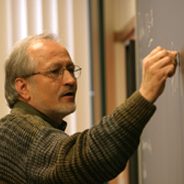 In this episode, Dr. Huffman chronicles the daily lives of the down and out poor residents in the slums of Tokyo and Osaka during the late Meiji Period. We discuss the life patterns and living conditions of slum residents, the rural poverty that drove people to look for jobs in the cities and overseas in places like Hawaii, the existence of charity and other social welfare programs to help the poor, and contemporary press coverage of the slums in the mass media before talking about the status of Tokyo slums today. (Transcript here).
In this episode, Dr. Huffman chronicles the daily lives of the down and out poor residents in the slums of Tokyo and Osaka during the late Meiji Period. We discuss the life patterns and living conditions of slum residents, the rural poverty that drove people to look for jobs in the cities and overseas in places like Hawaii, the existence of charity and other social welfare programs to help the poor, and contemporary press coverage of the slums in the mass media before talking about the status of Tokyo slums today. (Transcript here).
Episode 76 – Dr. Sayaka Chatani (National University of Singapore)
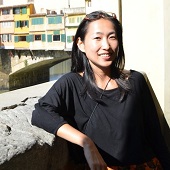 In this episode, Dr. Chatani raises the importance of rural Seinendan youth mobilization groups in rallying local support for the Japanese military across the Japanese empire, from Miyagi to Okinawa, Taiwan, and Korea. We discuss the reasons for popular support of the military amongst rural villagers and the large number of colonial youth who volunteered for the Japanese army, before shifting to talk about Dr. Chatani recent research on the lives of North Korean overseas nationals in Japan in the context of postwar northeast Asian geopolitics. (Transcript here).
In this episode, Dr. Chatani raises the importance of rural Seinendan youth mobilization groups in rallying local support for the Japanese military across the Japanese empire, from Miyagi to Okinawa, Taiwan, and Korea. We discuss the reasons for popular support of the military amongst rural villagers and the large number of colonial youth who volunteered for the Japanese army, before shifting to talk about Dr. Chatani recent research on the lives of North Korean overseas nationals in Japan in the context of postwar northeast Asian geopolitics. (Transcript here).
Episode 75 – Dr. Jonathan Reynolds (Barnard College, Columbia University)
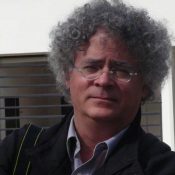 In this episode, Dr. Reynolds reinforces the Meiji foundations of modern Japanese national architectural as mix of Western and traditional forms. We discuss the Meiji origins of institutions of architectural practice including architectural training programs, the mixing of Western and Japanese traditional forms in the training curricula, and the Pan-Asian and hybrid style of Itō Chūta. We then fast forward to the postwar period to talk about continuities between prewar and postwar architecture, the importance of Japanese forms and architects in the global development of Modernist architecture, the National Diet Building and the aesthetics of Tokyo architecture, concluding with the politics of architectural preservation and restoration today.
In this episode, Dr. Reynolds reinforces the Meiji foundations of modern Japanese national architectural as mix of Western and traditional forms. We discuss the Meiji origins of institutions of architectural practice including architectural training programs, the mixing of Western and Japanese traditional forms in the training curricula, and the Pan-Asian and hybrid style of Itō Chūta. We then fast forward to the postwar period to talk about continuities between prewar and postwar architecture, the importance of Japanese forms and architects in the global development of Modernist architecture, the National Diet Building and the aesthetics of Tokyo architecture, concluding with the politics of architectural preservation and restoration today.
Episode 74 – Dr. Ayaka Yoshimizu (University of British Columbia)
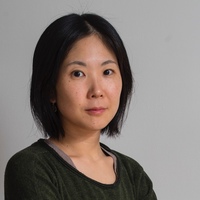 In this episode, Dr. Yoshimizu outlines and deconstructs discourses of proper women’s behavior amongst the Japanese-Canadian community in prewar British Columbia through representations of Japanese sex workers, waitresses, and wives in the Tairiku Nippō newspaper. We discuss the history of Japanese prostitution in BC, the importance of vernacular media to the Japanese immigrant community, and how the history of Japanese sex workers in BC is remembered today in both Japan and Canada.
In this episode, Dr. Yoshimizu outlines and deconstructs discourses of proper women’s behavior amongst the Japanese-Canadian community in prewar British Columbia through representations of Japanese sex workers, waitresses, and wives in the Tairiku Nippō newspaper. We discuss the history of Japanese prostitution in BC, the importance of vernacular media to the Japanese immigrant community, and how the history of Japanese sex workers in BC is remembered today in both Japan and Canada.
Episode 73 – Dr. Simon Partner (Duke University)
 In this episode, Dr. Partner retraces the footsteps of Japanese merchant Shinohara Chūemon in treaty-port Yokohama in the 1850-1860s, emphasizing the individual efforts from the bottom-up that made Meiji transformations possible. We discuss what life was like in treaty ports for Japanese residents, how Meiji reforms impacted Japanese residents both in the treaty ports and in rural areas, and the emergence of Japanese national identity in reaction to interaction with foreigners.
In this episode, Dr. Partner retraces the footsteps of Japanese merchant Shinohara Chūemon in treaty-port Yokohama in the 1850-1860s, emphasizing the individual efforts from the bottom-up that made Meiji transformations possible. We discuss what life was like in treaty ports for Japanese residents, how Meiji reforms impacted Japanese residents both in the treaty ports and in rural areas, and the emergence of Japanese national identity in reaction to interaction with foreigners.
Episode 72 – Dr. Ayako Yoshimura (University of Chicago)
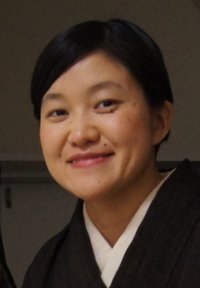 In this episode, Dr. Yoshimura weaves kimono into the study of Japanese material culture and folklore from the Meiji Period, noting how kimono fashion and cultural practices changed during the Meiji Period as kimono became Japan’s national garment. We discuss the materiality of folklore studies, Meiji kimono, and practices of kimono wearing today before talking about Dr. Yoshimura’s work on Asian-American grocery stores.
In this episode, Dr. Yoshimura weaves kimono into the study of Japanese material culture and folklore from the Meiji Period, noting how kimono fashion and cultural practices changed during the Meiji Period as kimono became Japan’s national garment. We discuss the materiality of folklore studies, Meiji kimono, and practices of kimono wearing today before talking about Dr. Yoshimura’s work on Asian-American grocery stores.
Episode 71 – Dr. Michael Dylan Foster (UC-Davis)
 In this episode, Dr. Foster guides us into the realm of yōkai, or supernatural spirits and monsters, as an introduction to the study of Japanese folklore. We discuss the popularity of the kokkuri divination game during the Meiji period as evidence for how Japanese were reacting to changes in everyday life, the continuing prominence of yōkai in Japanese pop culture and global imaginations of Japan, and the political context of UNESCO intangible cultural heritage sites and local tourist advertising in Japan.
In this episode, Dr. Foster guides us into the realm of yōkai, or supernatural spirits and monsters, as an introduction to the study of Japanese folklore. We discuss the popularity of the kokkuri divination game during the Meiji period as evidence for how Japanese were reacting to changes in everyday life, the continuing prominence of yōkai in Japanese pop culture and global imaginations of Japan, and the political context of UNESCO intangible cultural heritage sites and local tourist advertising in Japan.
Episode 70 – Dr. Noriko Aso (UC-Santa Cruz)
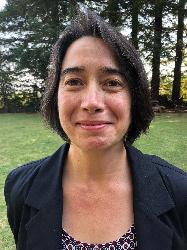 In this episode, Dr. Aso reconstructs representations of Japanese modernity in imperial museums from the early Meiji Period, noting the influence of international expositions and imperialist expansion. We then discuss Dr. Aso’s more recent research on wartime consumerism and department store advertising before talking about her classroom teaching on gender in East Asia.
In this episode, Dr. Aso reconstructs representations of Japanese modernity in imperial museums from the early Meiji Period, noting the influence of international expositions and imperialist expansion. We then discuss Dr. Aso’s more recent research on wartime consumerism and department store advertising before talking about her classroom teaching on gender in East Asia.
Episode 69 – Dr. Kerim Yasar (USC)
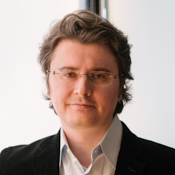 In this episode, Dr. Kerim Yasar notes how the introduction of technologies of sound production and reproduction impacted Japanese daily life during the Meiji period. We touch on the ability of informative technologies like the telegraph and the telephone to spread ideas and tie the nation together, before discussing the spread of popular culture, such as Naniwa Bushi and other performative arts, through the gramophone, radio, and film.
In this episode, Dr. Kerim Yasar notes how the introduction of technologies of sound production and reproduction impacted Japanese daily life during the Meiji period. We touch on the ability of informative technologies like the telegraph and the telephone to spread ideas and tie the nation together, before discussing the spread of popular culture, such as Naniwa Bushi and other performative arts, through the gramophone, radio, and film.
Episode 68 – Dr. Eiko Maruko Siniawer (Williams College)
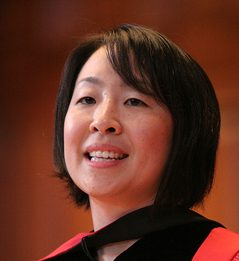 In this episode, Dr. Siniawer reconsiders the big questions of politics during the Meiji Period, touching on major developments including the construction of the Meiji state, divides within the Meiji ruling regime, samurai rebellions, and the Seikanron (“Punish Korea”) debates. We discuss the radical reforms of the Caretaker Government in the early 1870s, along with the political goals of protestors and violence in the Freedom and People’s Rights Movement, before talking about Dr. Siniawer’s more recent research on waste in postwar Japan. (Transcript here).
In this episode, Dr. Siniawer reconsiders the big questions of politics during the Meiji Period, touching on major developments including the construction of the Meiji state, divides within the Meiji ruling regime, samurai rebellions, and the Seikanron (“Punish Korea”) debates. We discuss the radical reforms of the Caretaker Government in the early 1870s, along with the political goals of protestors and violence in the Freedom and People’s Rights Movement, before talking about Dr. Siniawer’s more recent research on waste in postwar Japan. (Transcript here).
Episode 67 – Dr. Brian McVeigh
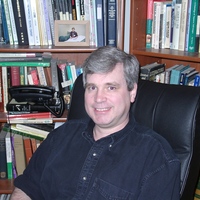 In this episode, Dr. Brian McVeigh investigates the development of the social sciences in Japan during the Meiji period, with an emphasis on the study of psychology. We discuss the place of the social sciences in the Japanese education and imperial university system, position Japan within global psychology practice, and map changes to the psychology profession over the course of Japanese history before contrasting ideas of the Self in the Meiji period and today.
In this episode, Dr. Brian McVeigh investigates the development of the social sciences in Japan during the Meiji period, with an emphasis on the study of psychology. We discuss the place of the social sciences in the Japanese education and imperial university system, position Japan within global psychology practice, and map changes to the psychology profession over the course of Japanese history before contrasting ideas of the Self in the Meiji period and today.
Episode 66 – Dr. Merry White (Boston University)
 In this episode, Dr. Merry White recasts Japan as a coffee country, emphasizing the popularity of coffee and coffee shops in Japanese society dating to the Meiji Period. We discuss multiple waves of coffee popularity in Japan, trends in different kinds of coffee shops, the prevalence of specialized coffee craft and techniques in Japanese cafes, and the view of Japanese society we get from the coffee shop, before comparing notes on our own favorite Tokyo cafes and obsessive coffee habits. (Transcript here).
In this episode, Dr. Merry White recasts Japan as a coffee country, emphasizing the popularity of coffee and coffee shops in Japanese society dating to the Meiji Period. We discuss multiple waves of coffee popularity in Japan, trends in different kinds of coffee shops, the prevalence of specialized coffee craft and techniques in Japanese cafes, and the view of Japanese society we get from the coffee shop, before comparing notes on our own favorite Tokyo cafes and obsessive coffee habits. (Transcript here).
Episode 65 – Dr. Marco Tinello (Hōsei University & Waseda University)
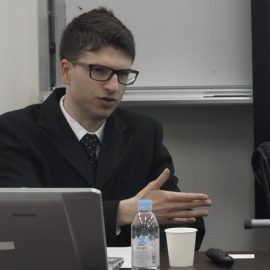 In this episode, Dr. Marco Tinello traces the origins of “Ryūkyū Shobun” and the Japanese colonization of the Ryūkyū Kingdom in the 1870s to Ryūkyūan embassies sent to Edo during the early modern period. We discuss the political importance of these embassies for the Tokugawa, the Ryūkyūs, and Satsuma, re-position the embassies in the complicated politics of Bakumatsu, and reinsert Ryūkyū into diplomatic negotiations with the Western powers from the 1850s.
In this episode, Dr. Marco Tinello traces the origins of “Ryūkyū Shobun” and the Japanese colonization of the Ryūkyū Kingdom in the 1870s to Ryūkyūan embassies sent to Edo during the early modern period. We discuss the political importance of these embassies for the Tokugawa, the Ryūkyūs, and Satsuma, re-position the embassies in the complicated politics of Bakumatsu, and reinsert Ryūkyū into diplomatic negotiations with the Western powers from the 1850s.
Episode 64 – Dr. Tze Loo (University of Richmond)
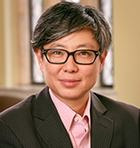 In this episode, Dr. Loo recounts the incorporation of the Ryūkyū Kingdom into Japan and the establishment of Okinawa Prefecture in 1879 as one example of Japanese territorial expansion following the Meiji Restoration. We discuss Meiji state policies towards the Ryūkyūs, the reactions of Ryūkyūan elites, local protest movements, comparisons to the colonization of Hokkaidō and Taiwan, and the legacies of this history for Okinawan identity and culture today.
In this episode, Dr. Loo recounts the incorporation of the Ryūkyū Kingdom into Japan and the establishment of Okinawa Prefecture in 1879 as one example of Japanese territorial expansion following the Meiji Restoration. We discuss Meiji state policies towards the Ryūkyūs, the reactions of Ryūkyūan elites, local protest movements, comparisons to the colonization of Hokkaidō and Taiwan, and the legacies of this history for Okinawan identity and culture today.
Episode 63 – Dr. Mark McNally (University of Hawaii-Manoa)
 In this episode, Dr. Mark McNally revisits the history of nativism and anti-foreignism during the years leading up to the Meiji Restoration, finding the late-Tokugawa period far more cosmopolitan than expected. We discuss early modern Japanese relations with the Ryukyu kingdom, the conversion of Ryukyu into Okinawa, and the history of Japanese emigration to Hawaii.
In this episode, Dr. Mark McNally revisits the history of nativism and anti-foreignism during the years leading up to the Meiji Restoration, finding the late-Tokugawa period far more cosmopolitan than expected. We discuss early modern Japanese relations with the Ryukyu kingdom, the conversion of Ryukyu into Okinawa, and the history of Japanese emigration to Hawaii.
Episode 62 – Dr. Gennifer Weisenfeld (Duke University)
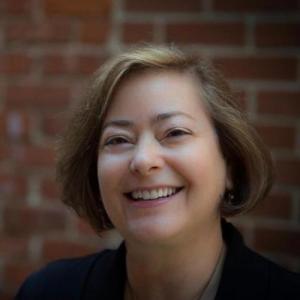 In this episode, Dr. Weisenfeld depicts how Japanese avant-garde artists responded to the structures and institutions of modern art constructed during the Meiji Period, as well as their destruction in the 1923 Great Kantō Earthquake. We discuss artistic reactions to modernity, the visual culture of civil air defense in wartime Japan, ties between visual culture and the nation-state, and the graphic design of Japanese corporate advertising. (Transcript here).
In this episode, Dr. Weisenfeld depicts how Japanese avant-garde artists responded to the structures and institutions of modern art constructed during the Meiji Period, as well as their destruction in the 1923 Great Kantō Earthquake. We discuss artistic reactions to modernity, the visual culture of civil air defense in wartime Japan, ties between visual culture and the nation-state, and the graphic design of Japanese corporate advertising. (Transcript here).
Episode 61 – Dr. Kazuhiro Oharazeki (Setsunan University)
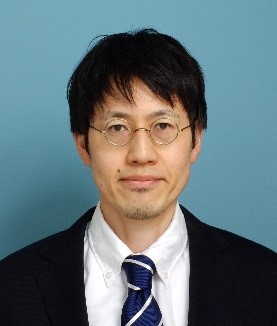 In this episode, Dr. Oharazeki details the lives of Ameyuki-san, Japanese women who traveled to North America in the late Meiji period to work as prostitutes. We discuss the reasons these women left Japan and compare them to Karayuki-san who went to China before talking about the conditions these women faced in North America, how local communities responded, and what impact these experiences had on anti-prostitution movements in Japan and the United States. (Transcript here).
In this episode, Dr. Oharazeki details the lives of Ameyuki-san, Japanese women who traveled to North America in the late Meiji period to work as prostitutes. We discuss the reasons these women left Japan and compare them to Karayuki-san who went to China before talking about the conditions these women faced in North America, how local communities responded, and what impact these experiences had on anti-prostitution movements in Japan and the United States. (Transcript here).
 Faculty of Art
Faculty of Art